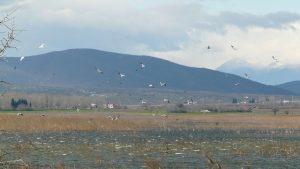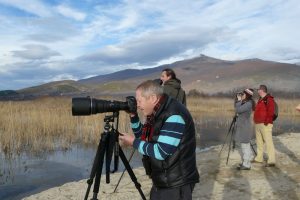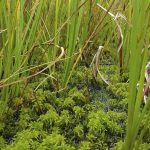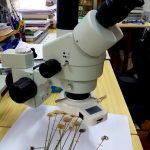Climate change push species distribution areas towards north, but the spread of ranges is not self-evident, because of anthropogenic pressures such as habitat degradation and over-exploitation. New research investigated the role of protected areas for range shifts of wintering waterbirds in Europe and North Africa. Species communities were noted to be faster inside protected areas compared to outside areas.
- Range shifts of waterbirds have been over 40% faster inside protected areas compared to outside areas. On average species communities have shifted in protected areas c. 90 kilometres in 25 years, says post-doc researcher Elie Gaget from University of Turku.

Waterbird census in Dojran

Waterbird census in Prespa
Protected areas not only aid the colonisation in the northern areas but also prevent local extinctions on the southern range of species compared to non-protected areas. Protected areas can thus expand the overall range of species. In addition to single protected areas, the protected network as a whole influenced the spread of waterbird species. Shifts in species communities were faster in areas which had dense protected area network compared to areas where the network was sparse.
- Our findings highlight that protected areas networks, historically established to fight against habitat degradation and over-exploitation, are now also important to mitigate the negative effects of climate warming on biodiversity”, says professor Jon Brommer from University of Turku, who directed the study.
The research was based in international collaboration and it utilised tens of thousands of waterbird surveys covering 97 species from 39 countries during 25 years. We have contributed with data for over 10 years and continue to do so. The international coordination of surveys has been conducted by Wetlands International and the research was published in scientific journal of Conservation Biology.
Link to the publication: https://conbio.onlinelibrary.wiley.com/doi/abs/10.1111/cobi.13648
More information
Post-doctoral researcher Elie Gaget, Department of Biology, University of Turku, elie.gaget@gmail.com
Professor Jon Brommer, Department of Biology, University of Turku, jon.brommer@utu.fi



